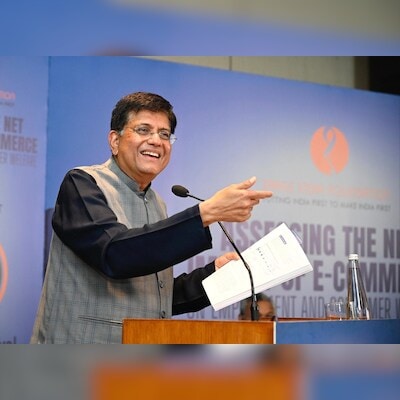There is huge potential for increased economic cooperation between India and Africa as both regions can aim to double two-way trade to $200 billion in the next seven years, Commerce and Industry Minister Piyush Goyal said on Wednesday.
Speaking at the CII’s India-Africa business conclave, Goyal said key sectors where companies from both sides can collaborate include agriculture, pharmaceuticals, mining, tourism, automobiles, critical minerals and renewable energy.
“I would like to suggest six areas of collaboration and cooperation as a way forward to take this relationship to the next level,” he said, adding, “Can we consider doubling our trade? So far, only a few African countries trade with India.”
He said as many as 33 countries do not participate in India’s duty-free tariff preference (DFTP) scheme.
“Can we ensure that more and more countries enjoy the fruits of this partnership and set a benchmark to double this trade figure from $100 billion to $200 billion between India and Africa? I think we should try to do it in seven years,” Goyal said.
He added that there are opportunities to increase collaborations in the IT sector as India can help African nations in infrastructure development, healthcare and financial inclusion needs.
“There is also potential in the entertainment sector, given our mutual strengths. In the sports field, we can also increase cooperation,” he said, adding that mineral-rich Africa can complement India’s growing needs for critical minerals, particularly for the electric vehicle sector.
Critical minerals such as cobalt, copper, lithium, nickel and rare earths play a crucial role in the production of clean energy technologies, from wind turbines to electric cars. Critical minerals are particularly in demand for the production of batteries for electric cars.
Sustainable practices in mining can become an area of collaboration and value addition of minerals in India can be embraced through joint ventures, he said.
“In terms of food security, India has several offerings for Africa and we have demand for oilseeds, pulses and lentils,” he said.
He added that both parties are working to increase cooperation in the MSME and startup ecosystem.
(Only the headline and image of this report may have been reworked by Business Standard staff; the rest of the content is auto-generated from a syndicated feed.)
First published: August 22, 2024 | 1:16 a.m. IS
Disclaimer:
The information contained in this post is for general information purposes only. We make no representations or warranties of any kind, express or implied, about the completeness, accuracy, reliability, suitability or availability with respect to the website or the information, products, services, or related graphics contained on the post for any purpose.
We respect the intellectual property rights of content creators. If you are the owner of any material featured on our website and have concerns about its use, please contact us. We are committed to addressing any copyright issues promptly and will remove any material within 2 days of receiving a request from the rightful owner.

